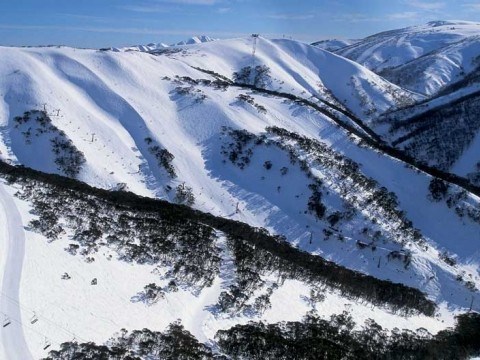The Australian ski industry is very important to Whistler for several reasons, says Arthur DeJong, manager of mountain planning and environmental resources for Whistler Blackcomb.
For one thing, it creates skiers and snowboarders, many of whom are visitors to Whistler.
For another, the industry creates a ski culture, which in turn makes it easier for Whistler to recruit employees for seasonal work on the mountain - for years Australians have been coming to Whistler by the thousands to spend a season or two enjoying the slopes.
But it's an industry that's in a tough position, according to DeJong, who was recently invited to speak at the Alpine Resorts conference in Australia.
"If their ski industry dies then it does affect Whistler," he said. "Australia is essentially about the beach culture, most people don't have regional opportunities to go and try skiing and they are less likely to develop an appetite to go abroad and ski. And the skiers who come here from Australia very likely got hooked on the sport by visiting one of their local mountains."
The Alpine Resorts organization represents all seven of Australia's ski resorts, which are located in a mountainous region that straddles the states of Victoria and New South Wales. All are located in state parks and have limited options for development.
"The challenge is that they are not high elevation resorts, and they're starting to sit on the edge of where the snow belts have been in the Australian Alps," said DeJong. "Government studies on climate change in those states are suggesting that the middle scenario climate change outcome is about a three degree Celsius rise in temperature, and that's very concerning for them."
DeJong said that you can't over- or under-react to climate change and that every region should be aware of how it will specifically affect them. For example, he says Whistler may see less snow at lower elevations, but could see more at higher elevations, if the coast becomes wetter and cooler as some climate models are suggesting.
"In Australia we're seeing that there is less snow and that the winter season is shortening, but the winter season is also drier and colder, and therefore snowmaking is becoming more effective as opposed to less," he said.
While it's important to adapt to the changing climate, DeJong also had a message that the Australian ski industry needed to take the lead in lowering greenhouse emissions.
"We have to adapt to climate changes of course, but we also have to do our part to mitigate," he said. "What's interesting is that Australia is having a hard time coming up with national or state carbon-reduction strategies because 93 per cent of their energy is still produced by coal, they have lots of coal and it's cheap. It's a struggle, but our industry needs to take a leadership role in carbon reduction."
In addition to making the most of the winter season, DeJong talked about the need to diversify into summer activities, such as lift-assisted mountain biking, hiking and alpine tours, zip lines, festivals and other nature-based experiences. However, he acknowledged that summer activities are a tough sell right now because the Australian Alps are accessed through an area that was destroyed in the "Black Saturday" bush fires of 2009 that killed 173 people and injured more than 400. Wind gusts over 100 km/h spread the fires across more than a million hectares of land.
As well, DeJong says that ski resorts in Canada and Australia both need to be more effective in appealing to ethnic groups not traditionally drawn to skiing.
"We as a resort need to be better at connecting with the multitude of ethnicities in our economic region and it's no different with Australia. I spent a few days in Melbourne and I can say that it's very ethnic, although the demographic for skiers is predominantly white."
DeJong also discussed the ways that Whistler Blackcomb is looking to connect to middle class families and to move past the idea that skiing is for the young and wealthy.
"There are challenges and opportunities for the industry and there are things that we're doing about it and that the Australians can learn from us - and vice versa," said DeJong.




